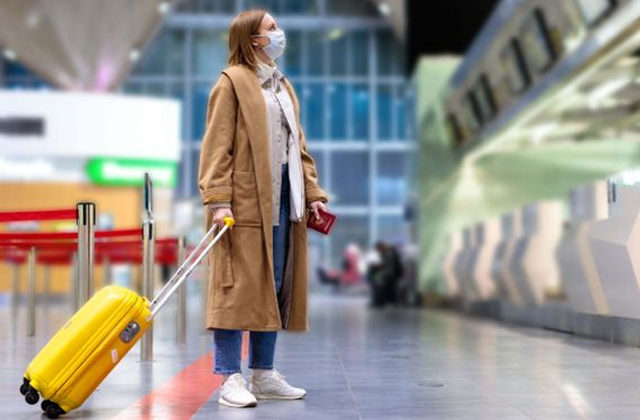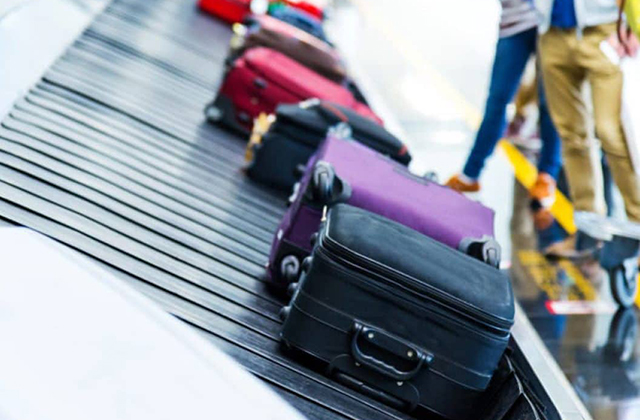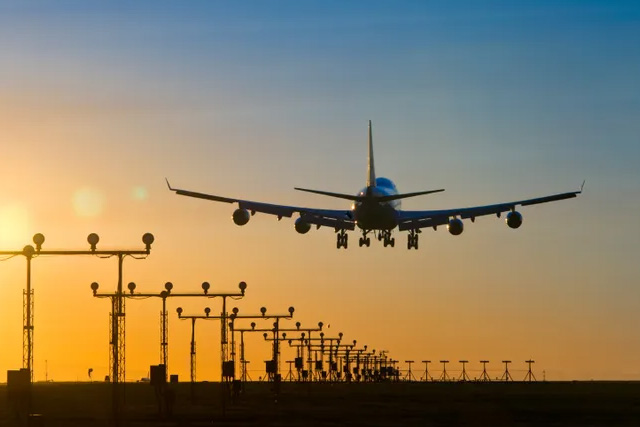
by pankaj | Oct 27, 2022 | Travel Tips
We travel on vacation to escape the stress of work and home, but getting to the airport and boarding the plane can be the most difficult aspect of the trip! To help you enjoy a great vacation from beginning to end, we have compiled stress-free travel advice for airports.
- Understand the travel requirements.
Nowadays, traveling is a little different, but Covid-related admin doesn’t have to be stressful. Entry requirements for various locations aren’t as hard as they initially appear. Typically, you’ll need to show confirmation of complete Covid-19 immunization or a negative Covid-19 test result. Additionally, you might need to fill out paperwork to hand in at check-in and at the border.
It can be simpler to present a little stack of papers than to navigate between a plethora of apps, so save yourself the stress by downloading all the documents to your phone (in case of a weak signal) and bringing printed copies as a backup.
- Pre-book your airport transfers.
Don’t wait until you arrive in an unfamiliar place to arrange transportation to your accommodation. If you pre-book your transportation, whether a private car with your name on it or an affordable shared shuttle bus, you can step off the plane knowing exactly where to go and when you’ll be by the pool.
- Pack light and right.
Your packing list will be a little different if you’re taking a vacation in the age of Covid-19. You must pack enough face masks and hand sanitizer for your trip. While travel companies and airports are working hard to maintain cleanliness, every one of us has a responsibility to guarantee our own and other people’s safety while traveling.
You can even travel with just your carry-on luggage if you reduce the rest of your packing list (and keep your hand sanitizer under 100ml). By bypassing the baggage carousel and skipping the heart-pounding moment of weighing your checked bags at the bag drop, you can arrive at your resort much faster.
- Arrive at the airport early.
Stop furiously checking Google Maps to find the nearest train or bus so you can make it through security in time for your flight. Instead, to account for delays or long lines, get there early—two hours before a short-haul flight and three hours before a long-haul one.
- Keep all your paperwork in one place.
It’s a good idea to gather all your critical papers before you go and store them in one location, like a specific pocket in your carry-on luggage, so you always know where to find them.
That also applies to any add-ons you’ve reserved, such as airport transport. Keep a printed copy of your reservation and all your important papers so you can access them quickly when you arrive.

by pankaj | Oct 20, 2022 | Travel Tips
Travel writers frequently discuss what to do when traveling. They discuss the must-see, must-do, stay here, dine here, spend here types of things. But what about all the DO NOT things? Much of the outdated conventional travel advice is no longer relevant in a world becoming more digital and connected. Additionally, as a society and the Internet both undergo rapid change, there are always new tips and tactics to learn. Many travel errors result in lost time, money, and missed opportunities.
Here, we’ll list some of the things you should avoid doing while traveling. You’ll travel more cheaply, wisely, and for longer if you stay clear of these typical blunders.
- DON’T eat near a major tourist site.
Any prominent attraction’s cuisine will cost twice as much and have half the flavor of food elsewhere. Restaurants don’t have to worry about maintaining a high standard of service when they know customers won’t be returning.
Eat at least five blocks away from a tourist trap instead of doing so. The cost (and quality) of the food decreases with distance.
- DON’T exchange money at the airport.
If you do, you’ll receive the poorest exchange rates. Once you are in the city/away from the airport, utilize an ATM or credit card to receive the best rates. This will ensure that you are not being taken advantage of and will be as near the interbank rate as possible.
Avoid exchanging money unless necessary (and sometimes you have to). Instead, try to convert money at a bank downtown if you need to, as you’ll obtain higher rates and lower costs. But try to use plastic as much as possible.
- DON’T use traveler’s checks/pre-paid cards.
Banks can issue checks with a predefined value called “traveler’s checks” that can be cashed anywhere globally. It was the easiest way for travelers to access money without carrying a lot of cash back when ATMs and credit cards weren’t widely accepted. However, if you are considering them, don’t use them now. They are no longer useful.
Additionally, avoid purchasing those ATM cards with pre-paid cash. Your bank loads these cards with a predetermined amount of money. Because you’re constantly paying in local currency, there won’t be any costs. The issue, though, is that the exchange rate you paid could change. So, use a standard credit card only.
- DON’T skip travel insurance.
Although it may seem like a high extra cost, travel is all about the unknowable. On the road, anything might happen at any time. So, travel insurance is a wise purchase because it protects you while you are away from home. In addition, you can use it to safeguard yourself against medical and non-medical emergencies.
- DON’T take taxis.
Budgets die in cabs because they are virtually always pricey. So, ignore them. These are only useful if you split the trip’s cost with several people or need to go somewhere late at night. Use public transportation as often as you can instead.

by pankaj | Oct 10, 2022 | Travel Tips
How will you approach your upcoming trip if you are a solo traveler? If you are wondering where you should go and what you should do, then here you will get all your answers. The tips described in this article will assist you in deciding your travel destination. Most of these suggestions take a few minutes and can save you money, hassle, and confusion. But are you prepared to create the ultimate solo trip? So, let’s get started!
Tips to Make your First Solo Trip Memorable
Below we have outlined some tips to make your first solo trip memorable:
- Plan everything
While organizing your solo trip, having a plan is crucial. There is no set order according to which you must complete tasks, although the following are some suggestions:
- Make hotel reservations.
- Plan a few tours with local operators.
- Plan your airport pickup if you’re flying in.
- Conduct thorough research on the city and its surroundings, considering things like cultural customs, well-known tourist attractions, common routes, food preferences, mobile networks, regional cuisines, etc.
- Prepare a budget accordingly.
Another factor to consider while planning a solo trip is the expense of your trip. Therefore, your choices regarding travel and accommodation are the most crucial.
Get a clear idea of travel and accommodation expenses before settling on a budget for your solo vacation. First, you must determine the cost of using taxis, public transit, etc. The biggest expense for a solo traveler is accommodation, which might account for 50% to 80% of the overall price. The general idea is to guarantee safety while keeping your accommodation prices as low as possible.
- Set clear goals
When planning for your first solo trip, you easily feel overwhelmed. You’re trying to get around a new city and determine how to make the most of your stay. So why not begin with some intention setting, keeping this in mind?
Consider your trip an opportunity to get to know yourself better; perhaps you want to see how well you can manage on your own while traveling. Or perhaps you want to push yourself or build your confidence. Finally, maybe you want to know what it’s like to move somewhere new, meet new people, and start again. So, if you’ve thought out the objectives for your trip, you’ll find it easier to make the most out of it.
- Pack light. Pack necessary.
Pack accessories and toiletries in small sizes. As much as possible, avoid bringing valuables to save yourself time from worrying about the security of your suitcase. Pepper spray should always be carried in case of emergency. Carry a diary to document your trips, but more importantly, keep a good book nearby to distract your attention from the awkwardness of eating alone.
Conclusion
You’re now prepared to make that solo journey a reality. Taking action is the best way to get through those emotions. You can achieve this by making thorough preparations in advance, selecting the appropriate venue, and gathering all the necessary information about your destination.

by pankaj | Oct 7, 2022 | Travel Tips
If you travel often, you have most likely experienced the nightmare of missing luggage during your travels. In today’s time, flying is pretty messy, and it may include the problem of lost luggage. The longer it takes for your luggage to arrive, the more nervous you get. Unfortunately, losing your luggage is very common, but you can take several measures to prevent this.
- Make sure your bag is tagged properly.
Making sure your luggage is properly tagged is a pretty easy approach to prevent things from going missing. No one can be too careful, so make sure the current tag is easy to see, get rid of any outdated tags, and check the tag once the check-in agent has attached it to your bag.
- Get hi-tech with your tagging.
Locating misplaced luggage becomes much easier with the use of GPS-tracked tags. Although various gadgets are available, most of them typically consist of a small tag or device and a smartphone app allowing you to follow your bags.
In addition to reducing the stress of losing your luggage in the first place, knowing the specific location of your luggage can assist the airline in getting it back to you more quickly.
- Mention clearly where it’s going and who owns it.
Along with an ID badge on your luggage, it’s smart to have some information inside the case, such as your contact information and travel plans. In other words, the more details your luggage has, the simpler it will be to return it to you. Print out your itinerary and place it on top of your clothing to make it simpler for baggage handlers to return your bag to you. Sometimes, baggage handlers will look inside bags to determine where they are going and who the contents belong to.
Your chances of having your luggage arrive late increase if you are the last person to board the aircraft, and they are also the last to be loaded.
Remember that your luggage needs to get to the loading bay once you leave it off at the check-in desk. If you wait till the last minute to pack, your luggage may not arrive at the loading facility in time and may not be loaded.
Most travelers merely want to grab their luggage and leave the airport quickly after a long flight. Unfortunately, a case of mistaken identity can occasionally happen while people are rushing. To make your luggage stand out among the hundreds of others, you could add a few colored straps to distinguish yours from the others. These straps have a dual role in keeping your luggage safe.

by pankaj | Oct 3, 2022 | Travel Tips
First-time traveling brings in a storm of feelings. It can be a little overwhelming with all the preparation for the trip, concerns about what to take, the unknowns of navigating a foreign culture and possibly a foreign language, and the uncertainty of what to expect when you get there.
Therefore, if you’re new to the tour and looking for advice to help you prepare, here are some tips to help you avoid some common early mistakes.
- Don’t be scared.
Fear works well as a deterrent. Although stepping into the unknown can be frightening, you are not the only person to have traveled the globe. There is a well-traveled path available, and there are those who can direct you. You can travel the world if millions of people do so every year. Despite your fears and trepidation, you are just as capable as everyone else.
- Don’t depend on your guidebook.
Although they are helpful for getting an overall perspective of a place, guides never include the newest off-the-beaten-path activities, bars, or restaurants. Connect with locals to find out what is trending for the best items. Request advise from other visitors or the staff of the hostel.
Your best source for current travel information is people. Don’t base your life on a guidebook unless it’s digital.
- Travel Slow
It may be tempting to attempt to see everything. We constantly strive to visit everything in our limited vacation time possible. In the end, all we have left are images, tension, and a flurry of experiences, with no true understanding of the locations we visited.
So, do not make your trip go such fast. Make time to relax in the park. It offers you time to really immerse yourself in a culture.
- Get people’s contact information.
On the journey, you’ll meet a lot of new people. Some of them will remain close friends forever. However, there are times when you miss out on their contact information and regret it always. Get people’s contact information so you can keep in touch with them years after your trip.
- Take extra money.
Despite your best efforts, there will always be disasters and adjustments to your plans. No matter how well you prepare, something can always happen to throw your budget. So, carry extra money than you think need.
Conclusion
There is a network of travelers everywhere you go who will become your friends, offer you guidance or tips, and assist you. They will serve as your mentors and direct you in the appropriate route. You’re not alone out there. You’ll meet people and you will have fun. So relax and plan your vacation!

by pankaj | Sep 26, 2022 | Travel Tips
The most expensive factor of a trip is typically the airfare. Although international flight costs have decreased recently, they can still impact any traveler’s budget. Whether you’re a solo traveler on a tight budget or a family planning an overseas vacation, finding a cheap airline deal can make or break your trip.
If you find that your flight is too pricey, you’ll probably keep postponing your vacation. So, I will assist you in acquiring the skill of locating cheap airfare today. No matter where you wish to travel in the globe, follow these steps to find a cheap flight:
- Flexibility with your Times and Dates of Traveling
Airlines ticket costs might vary significantly depending on a weekday, the season, and upcoming holidays like Christmas and New Year’s Eve. Everyone wants to go on vacation somewhere to feel warm in winter or travel when their kids are on holiday, which is why August is a popular travel month throughout Europe.
In summary, your ticket will be more expensive if you plan to fly during peak travel times. If you want to go to Paris, travel there in the spring or fall when fewer people are there, and the cost of airfare is lower.
Furthermore, flying during the week is usually less expensive than weekend travel because the latter is the busiest travel day and is associated with higher airfare. If you fly after or on a significant holiday, costs are lower. Because fewer people wish to fly at those times, flights early in the morning or late at night are also less expensive. Because most business travelers prefer to fly on Fridays and Mondays, those days are more expensive.
Adaptability with your travel plans will help you find cheap flights and be flexible with your travel dates and destinations. For instance, it is sometimes less expensive to fly to London and then take a low-cost airline to Amsterdam than to fly directly from your departure city to Amsterdam.
It may be less pricey to depart from a neighboring airport. This strategy requires more work because you must research numerous routes and airlines. However, it may result in a cheaper flight, making the extra work worthwhile if you save a few hundred dollars.
- Keep an Eye for Special Deals
Make sure you’ve subscribed to certain emails before you start hunting for specific lighting. You may access the finest offers by signing up for airline and last-minute deal websites’ mailing lists. Although 99% of them may not fit in with your plans, keeping an eye on the discounts can ensure that you don’t pass up a fantastic opportunity.
Cheap flights are frequently only offered for a short window (usually 24 hours). You’ll probably pass on the best offers if you don’t constantly search the web for sales.
In addition, frequent flyer bonuses are frequently offered in airline mailings. Those points and miles might add up to free flights and amazing upgrades if you’re a travel hacker.
- Book Early (But Not Too Early)
The closest you are to departure, the more expensive plane tickets become, but there is a sweet spot where prices start to fluctuate depending on demand. So don’t reserve much in advance, but don’t wait until the last minute. The optimal time to purchase a flight is two to three months before departure or five months in advance if you travel during a destination’s busy season.
Final Words
Being adaptable and creative are keys to finding a cheap flight. Start by using the suggestions from this section on finding a cheap flight. By doing that, you’ll always get a fantastic deal!








